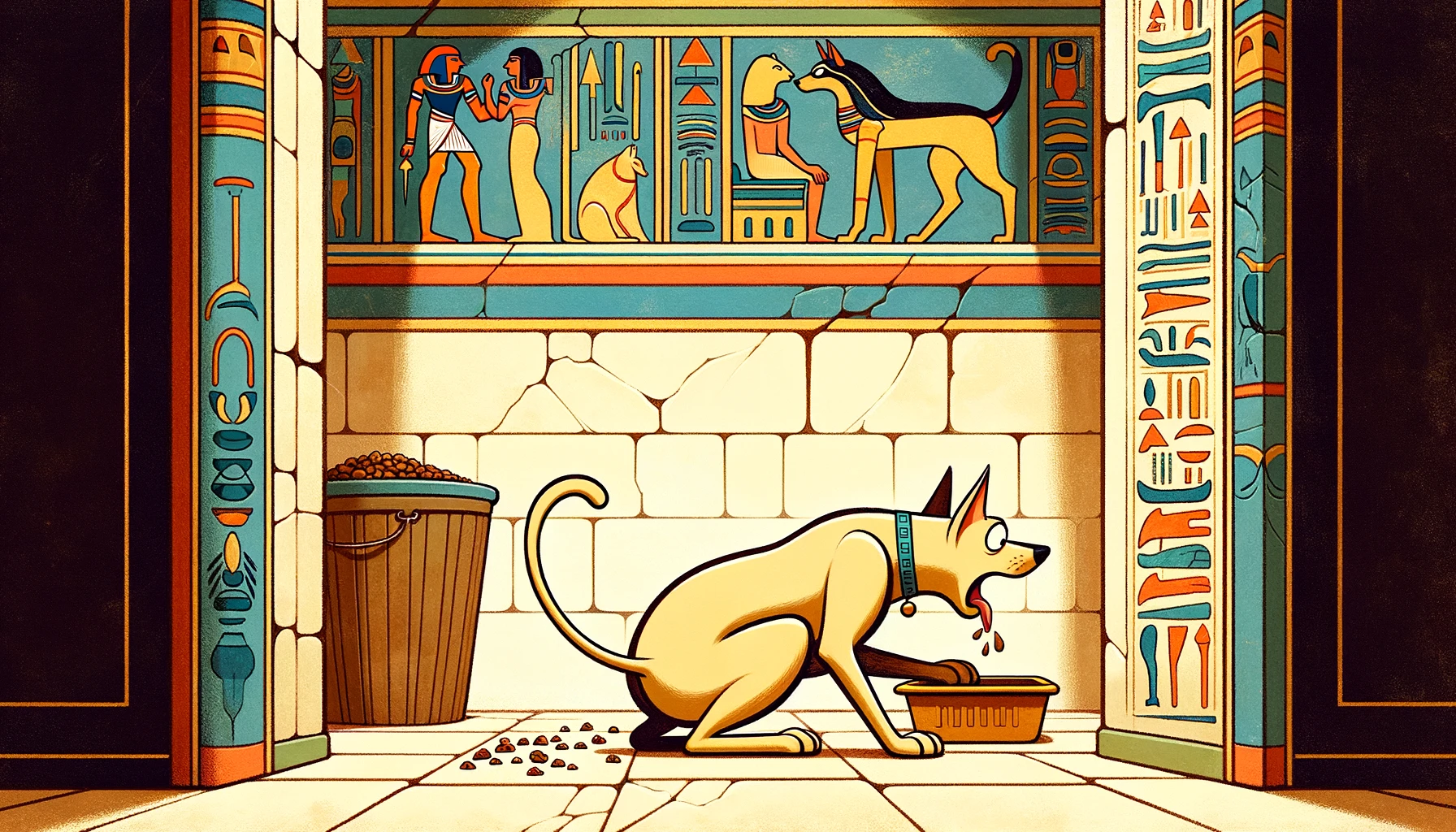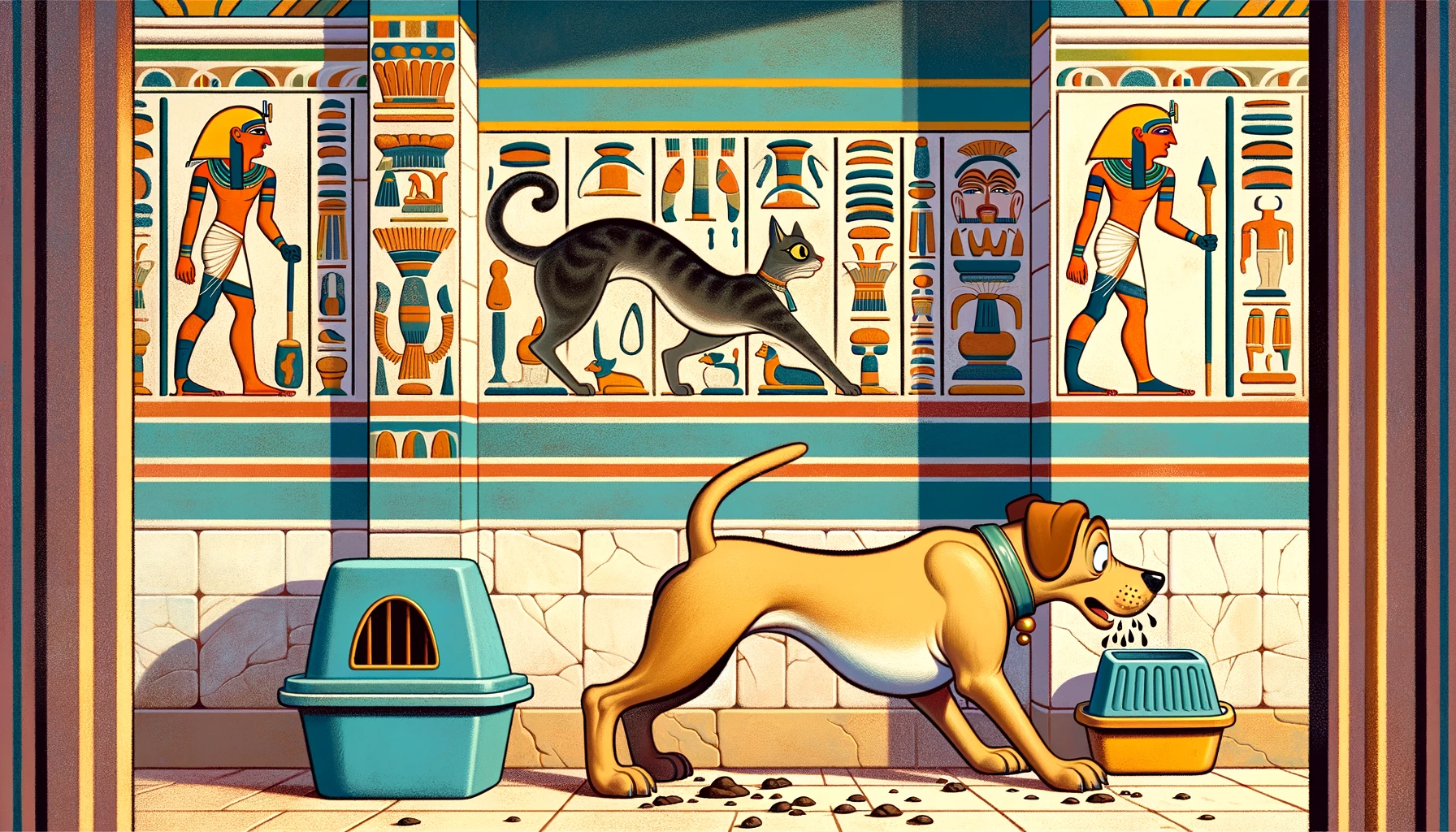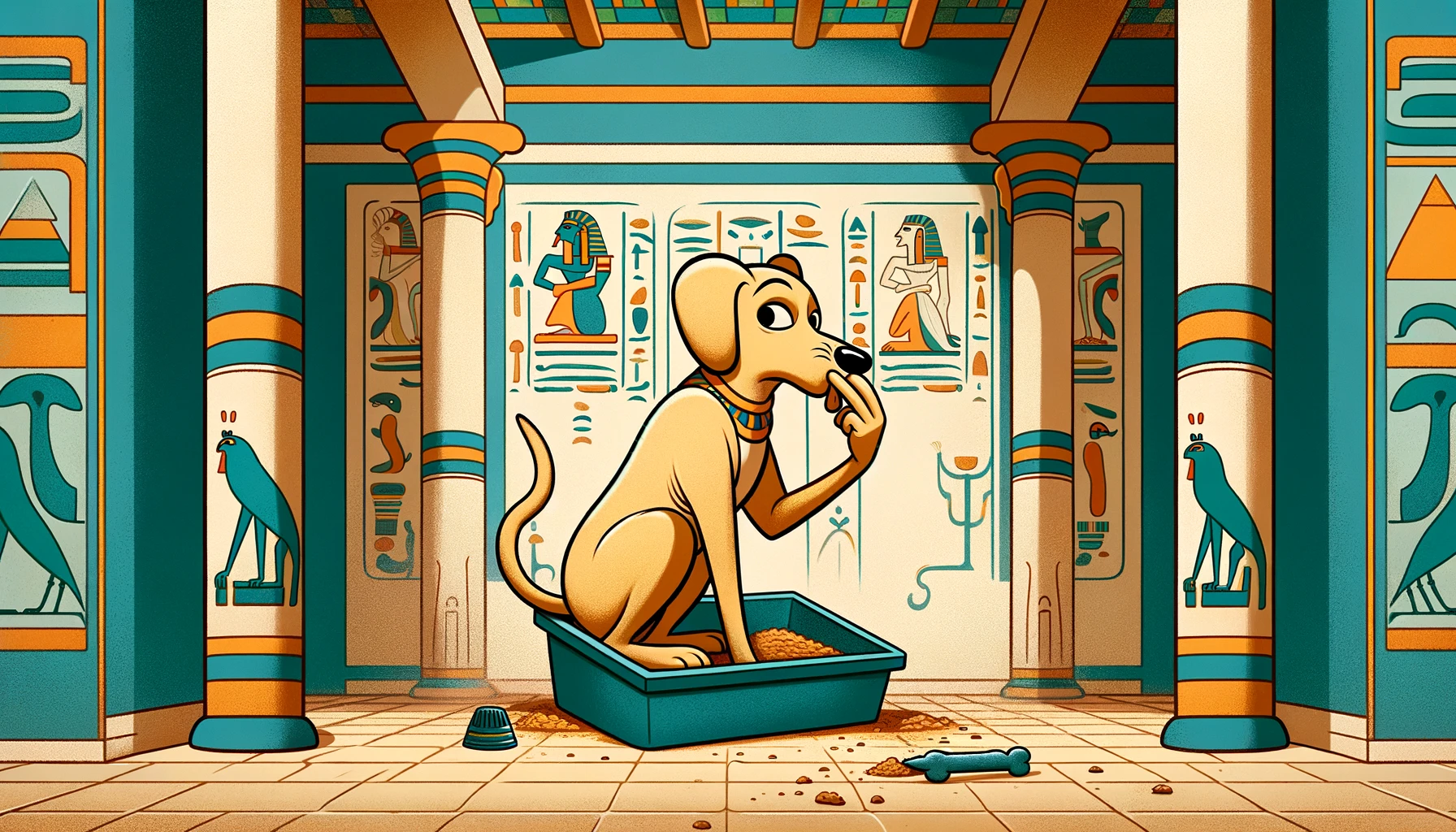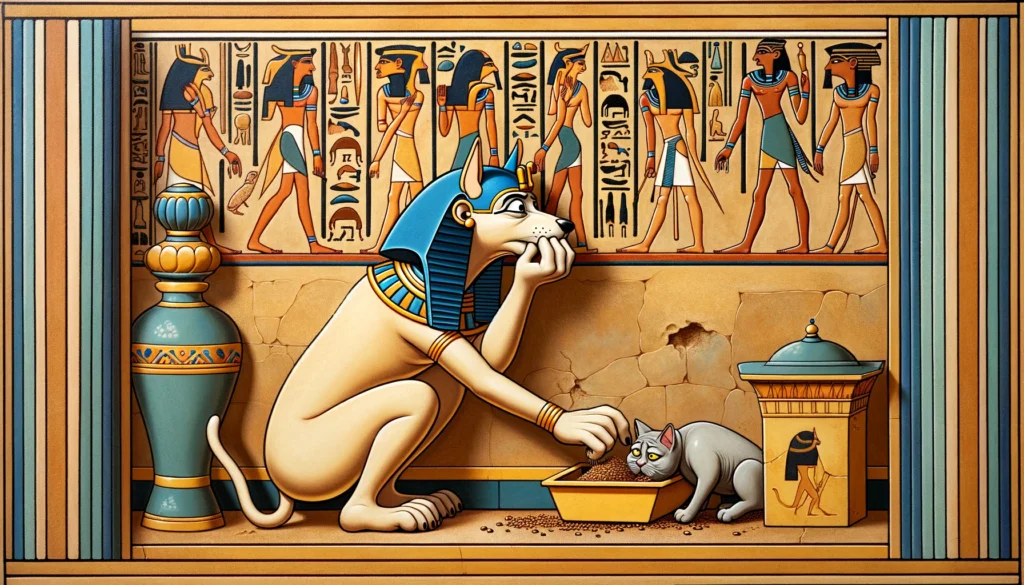If you’re a pet parent, you know how frustrating it can be when your dog starts eating cat poop out of the cat litter box.
It’s not just gross—it can also pose serious health risks for your pup. The unsanitary behavior might leave you feeling concerned, unsure of why it’s happening or how to stop it.
Luckily, there are ways to address this issue effectively. In this article, we’ll explore why dogs are drawn to cat poop, the potential dangers it can cause, and practical steps to prevent your dog from indulging in this nasty habit for good.
Key Takeaways
Understand the Reasons: Dogs may eat cat poop due to curiosity, nutritional deficiencies, or boredom.
Recognize the Dangers: Eating cat poop can lead to infections, intestinal blockages, or exposure to harmful parasites and bacteria.
Prevent the Behavior: Use barriers, covered litter boxes, and clean up frequently to make cat poop inaccessible to your dog.
Provide Alternatives: Keep your dog mentally and physically stimulated to reduce their interest in the litter box.
Seek Professional Help: If the behavior persists, consult your vet to rule out underlying health issues or seek training advice.

Be sure to check out our guide on how to clean a cat litter scoop!
Why Dogs Eat Cat Poop
There are several reasons why dogs are drawn to cat poop, and while it may seem gross to us, it can actually make sense from a dog’s perspective. Let’s go through the most common reasons.
Nutritional Curiosity
Dogs are scavengers by nature, meaning they often seek out food sources wherever they can find them. Cat poop may contain leftover nutrients that weren’t fully absorbed by the cat, which can make it an attractive snack for dogs.
Cats eat a high-protein diet, and the undigested proteins and fats in their feces might still smell appetizing to dogs.
This nutritional curiosity is one of the main reasons why dogs eat cat poop out of the litter box.
Instinctual Behavior
Dogs are known to follow their instincts, and scavenging is a deeply ingrained one. In the wild, many canines, including wolves, scavenge food from various sources, including the waste of other animals.
While we’ve domesticated dogs, these instincts can still drive their behavior. Eating cat poop could simply be your dog acting on its natural scavenging instincts.
Boredom or Attention-Seeking
Sometimes dogs eat cat poop because they’re bored. When left alone for long periods, dogs can turn to destructive or unusual behaviors to pass the time.
Your dog might find digging through the litter box entertaining or a way to get your attention. If they know they’ll get a reaction from you when caught in the act, this could reinforce the behavior.
It’s a Taste Treat (Gross but True!)
As unappetizing as it sounds to us, dogs might just enjoy the taste of cat poop. Since cats’ diets are rich in fats and proteins, their poop can have a particular scent and taste that is enticing to dogs.
Behavioral or Medical Issues
While most reasons are harmless, sometimes dogs eat cat poop due to behavioral or medical issues. Dogs with conditions like malabsorption syndromes, enzyme deficiencies, or nutrient imbalances may be more likely to eat cat poop as they try to make up for missing nutrients.
If your dog has suddenly started this behavior, a visit to the vet is a good idea to rule out any underlying health problems.

Dangers of Eating Cat Poop
While this behavior is mostly an inconvenience, there are some dangers involved when dogs eat cat poop.
Cat feces can carry parasites and bacteria that are harmful to dogs, and it’s important to be aware of these risks.
- Parasites: Cat poop can carry parasites like roundworms that could infect your dog. Parasites can lead to a variety of health problems, including digestive issues and malnutrition.
- Bacteria: There’s also a risk of bacterial infection, such as salmonella, which can cause serious illness in dogs.
- Litter Hazards: If your dog is also consuming clumping litter, particularly litter containing sodium bentonite, this can pose a danger as it can expand in your dog’s intestines, leading to blockages. In severe cases, this could result in toxicosis or require surgery.
Symptoms if Your Dog Eats Cat Poop
If your dog has indulged in some litter box “snacks,” there are a few symptoms to watch out for that could indicate they’re experiencing negative side effects:
- Vomiting
- Diarrhea
- Abdominal pain
- Decreased energy or lethargy
- Bad breath
If you notice any of these symptoms after your dog has eaten cat poop, especially if they persist, it’s a good idea to consult your vet to ensure your dog hasn’t picked up an infection or developed a blockage.

How to Stop Dogs from Eating Cat Poop
Now that we understand the reasons why dogs eat cat poop out of the litter box, let’s discuss how to stop it. Fortunately, there are several strategies you can try to curb this habit.
Place the Litter Box in an Inaccessible Area
One of the easiest ways to prevent your dog from eating cat poop is to make the litter box physically inaccessible.
You can place the litter box in a room that your dog can’t enter but is still easily accessible to your cat. Installing a pet gate or using a cat door can create a barrier that keeps the dog out while still allowing the cat to use the litter box.
Use a Covered or High-Sided Litter Box
A covered litter box or one with high sides can help prevent your dog from accessing the cat poop. While this won’t completely block the smell, it will make it more difficult for your dog to reach the poop.
Top-entry litter boxes are another option. While some cats dislike these, they can work for cats that don’t mind and can effectively keep the dog out.
Clean the Litter Box Frequently
One practical solution is to scoop the litter box more frequently. If you clean it out right after your cat uses it, there won’t be any poop left for your dog to find.
This might require a bit more vigilance on your part, but it can be effective in eliminating the temptation altogether.
Use Pet-Deterrent Products
Before we move on: Please note that it’s best to use these sprays around the litter box area, such as on the outer surfaces of the litter box or nearby floor space, to keep your dog away.
You can also consider other methods, like placing the litter box in an area that’s inaccessible to your dog, to avoid using deterrents directly in the litter.
Why?
Because these pet-deterrent sprays should not be directly applied to cat litter. Most of them contain bitter agents or chemicals that are safe when sprayed around surfaces, but they could irritate your cat or discourage them from using the litter box if applied directly to the litter itself.
Here are some examples that you can look into.
- NaturVet Bitter YUCK! No Chew Spray: This spray has a bitter taste that deters dogs from chewing or eating undesirable items, including cat poop. It’s non-staining and can be sprayed near or on the litter box.
- Grannick’s Bitter Apple Spray: A well-known product that uses a bitter taste to discourage dogs from chewing or eating. It can be sprayed around the litter box area to prevent access.
- Sentry Stop That! Behavior Correction Spray: Although primarily used for correcting unwanted behaviors like chewing or barking, this spray can be used to discourage dogs from eating cat poop by creating an unpleasant experience.
- Chewfix Bitter Spray for Dogs: This is another bitter-tasting deterrent spray that can be applied around the litter box to reduce your dog’s interest in eating cat poop.
- Four Paws Keep Off! Indoor & Outdoor Dog & Cat Repellent: Designed to keep pets away from certain areas, this spray can help prevent dogs from getting close to the litter box.
These products are safe to use in the litter box and can help discourage your dog from snacking on its contents.
You’ll want to ensure that the deterrent doesn’t upset your cat or cause them to avoid using the litter box.
You can also try adding spicy deterrents, like a small amount of pepper, to the litter itself. The scent and taste can help discourage your dog from eating the poop.
Provide Distractions and Enrichment
If boredom is the issue, keeping your dog mentally and physically stimulated can help. Providing toys, puzzle feeders, and regular exercise can keep your dog entertained and reduce their interest in the litter box. Sometimes, simply giving them something better to do is enough to curb the behavior.
Train Your Dog with Positive Reinforcement
Training is an effective long-term solution. Use positive reinforcement techniques to teach your dog to leave the litter box alone.
When your dog approaches the litter box, redirect their attention with a treat or toy and reward them for staying away.
Over time, they’ll learn that leaving the litter box alone is more rewarding than eating the cat poop. Using a specific command like “leave it” can also be very helpful.
Train your dog to respond to this command consistently and use it when they approach the litter box.
Things to Avoid
While trying to prevent your dog from eating cat poop, there are a few strategies you’ll want to avoid:
- Top-Entry Litter Boxes: While these might be an effective deterrent for some dogs, many cats dislike top-entry boxes and may stop using the litter box altogether if forced to use one.
- Placing the Litter Box in Inconvenient Locations: Avoid placing the litter box in outdoor or hard-to-reach areas like basements. Your cat needs to feel comfortable using it, and difficult access can cause stress.
- Toilet Training Your Cat: While toilet training may seem like a solution, it’s unnatural and stressful for cats. Cats prefer to dig and cover their waste, and forcing them to use a toilet can lead to behavioral and stress-related issues.
Risks for Cats
It’s important to remember that your cat may also be affected by your dog’s behavior. Dogs eating from the litter box can stress your cat, especially if the box is disturbed regularly.
Cats are sensitive about their litter box space, and the stress from sharing this space could lead to urinary problems or cause your cat to stop using the litter box entirely.
When to See the Vet
If your dog’s habit of eating cat poop persists despite your best efforts to stop it, or if you suspect there could be a medical reason behind it, it’s important to consult your veterinarian.
Eating feces can expose dogs to harmful bacteria, parasites, or even diseases, so it’s crucial to get a professional opinion if you’re concerned.
Your vet may also check for underlying medical issues that could be causing the behavior, such as digestive problems or nutritional deficiencies.
Treating any health issues will not only improve your dog’s overall well-being but could also reduce their interest in the litter box.
FAQ on Dogs Eating Cat Poop
Q: What actions should I take if my dog consumes cat poop?
A: If your dog ingests cat poop, closely monitor them for symptoms like vomiting or lethargy and consult a vet promptly for a wellness evaluation. This behavior can lead to toxoplasmosis, which is serious.
Q: What are the reasons my dog consumes cat litter?
A: Dogs may view cat litter as a source of protein, mistaking it for food. It’s crucial to check with a vet if this behavior persists to rule out any dietary deficiencies or health concerns.
Q: Can vitamin B prevent my dog from eating poop?
A: Adding vitamin B or enzyme supplements might help if your dog’s poop-eating is due to nutrient deficiencies. Additionally, consider using products designed to make feces less appealing to your dog.
Q: Is toxoplasmosis a risk for my dog from cat feces?
A: Yes, dogs can contract toxoplasmosis by consuming cat poop containing the parasite. This condition can affect various animals and humans, highlighting the need for preventive measures.
Q: Why does my dog keep consuming cat feces?
A: Dogs often eat cat feces because of the nutrient content, especially if they’re not receiving a balanced diet. This can occur with homemade diets that fail to meet all nutritional needs.
Q: Will stopping my dog from eating cat feces require dietary adjustments?
A: Modifying your dog’s diet or increasing supervision around cat areas might be necessary. Ensure your dog’s diet is balanced to prevent them from seeking nutrients from cat feces.
Final Thoughts
While it can be frustrating (and gross) to see your dog eat cat poop out of the litter box, understanding the reasons behind this behavior helps us take the right steps to address it.
Whether it’s due to instinct, curiosity, boredom, or a possible health issue, there are plenty of ways to stop this habit in its tracks.
From rearranging the litter box to training your dog and keeping them mentally stimulated, you’ll have the tools you need to prevent this behavior and keep both your dog and cat happy.
If you’re facing this issue at home, don’t worry—you’re not alone. With a little patience and some practical strategies, we can all put an end to this strange habit and create a cleaner, more peaceful home for our pets.
Further Reading
Why Do Dogs Like To Eat Cat Poop?


